Essay mills explained: What they are and why you should avoid them
Essays and term papers can be stressful, especially for international students who sometimes doubt their ability to research in depth and write thousands of words in English, all to a tight deadline.
That’s where essay mills come in, exploiting the fears of students and offering to do the hard work for them in exchange for money.
But here’s the spoiler alert - you should absolutely avoid essay mills. All the time.
They don’t work for you. They don’t even work for the essay writers themselves, and you should see that as a big warning sign. But more on that below.

What are essay mills?
Essay mills are pretty straightforward: You pay a company to write your essay for you. The company in turn offloads the essay to a (usually freelance) writer. A couple days or weeks later, and you get your completed essay in return.
It’s not like a proofreading service, where someone can check your spelling, grammar and citations for a fee (though even those are controversial in universities). No, essay mills offer to write you an entire essay from scratch.
In other words, they allow students to commit academic fraud. In fact, they exploit the worries and stresses of students and entice them into cheating. They’re considered deeply unethical, and put students themselves at risk of severe punishment if caught.
Another business model of this kind are essay banks. Here, students can buy essays that have already been written. But there’s a much higher risk of getting caught for plagiarism, since who knows how many hundreds or thousands of people have used that very same essay.
Are essay mills legal or illegal?
The legality of essay mills depends on where you go to university, but the unethicality is clear no matter the location. Here’s a quick rundown of essay mills’ legal status in popular study abroad countries:
Anti - essay mill legislation in the UK was passed in the House of Commons in February 2021, and will soon be made law. It’s not totally illegal yet, but it’s just a matter of time.
The Republic of Ireland has also passed a number of bills to help tackle essay mills, while the practice is totally illegal in Australia and New Zealand.
As for the USA and Canada, some US states have made them illegal, while Canada is under mounting pressure to follow suit.
But the content and nuances of these laws changes from place to place. For example, in some US states it’s illegal for the student to use them, whereas the bills in Ireland, the UK, New Zealand and Australia are an attempt to criminalise essay mill companies themselves.
However, when we talk about legality, we’re of course talking about the law. But just because you might not cause a criminal offense by using essay mills, it’s still academic fraud and/or plagiarism. And getting caught for that can come with some dire consequences.
Long story short, you really shouldn’t use them, regardless of their legality.
Why you should avoid essay mills
1. if it doesn’t make dollars, it doesn’t make sense.
The writer's pay is awful. I mean really bad. Trust me -- I write for a living, and I’ve seen hundreds of advertisements for essay mill jobs. Every time I see one I can’t believe how little money the writers make for so much time and effort.
But does this affect you? Totally! Would you care about doing great work if, a) the money was terrible, and b) it wouldn’t take you anywhere in your career? I know I wouldn’t...
Let’s talk about cost and time to put this into some perspective. The price range of essay mills varies wildly depending on the writers they employ. You can pay anywhere between £10-£35 per page. Roll this out over a 10 page essay, and it could be anywhere between £100 and £350 for the final product. But you can also come across offers for much, much less money than this.
While that higher end of £350 might seem like a lot of money, trust me -- it’s really nothing for the amount of research, writing, citations, editing and proofreading required.
If £100 per day is considered a “just fine but not great” sum of money in the UK, a writer would have to do all the work on your essay in 2.5 days just to make it worthwhile. And they’d have to do it without the subject knowledge that you have.
2. The writers aren’t subject experts
Think about it: if they were a subject expert, would they really be working for a shady company that facilitates cheating? Not a chance.
The main point is that these writers are badly underpaid and they’re not experts, therefore they’re putting very little effort or expertise into your essay. They just want to do it as quickly as possible before moving onto the next one.
3. There’s no guarantee of a good grade
None. Since the writers are underpaid, lack expertise and rush their work, it’s a recipe for a bad final product. Multiple studies have shown that essay mills do mediocre work at best.
The essay you pay hundreds of pounds for might get you a pass grade, but you could do much better yourself.
4. The punishment is harsh
Every university has severe laws on plagiarism and academic fraud, which is the exact result of using an essay mill. At its most lenient, a student caught breaking rules on plagiarism will receive no grade at all for the work, but at worst they can be suspended or even expelled from your university.
But the perfect “crime” goes unnoticed, right? Well, it’s unlikely in this case.
5. Essay mills and detection services
Most universities use pretty innovative plagiarism detection software these days, which can pick up on any hint of fraudulent work. Thus, the risk of getting caught is very high. And by the time a student does get caught, they’ve already lost their hard earned cash to the essay mill company.
6. Essay mills don’t care about you
The company doesn’t care about you, and nor does the writer. That’s a pretty bad starting point for doing business! Once they’ve got their money and done their sub-standard work, they can move on to exploiting someone else’s fears.
7. There’s a risk of scams
Most essay mill sites demand a deposit of the final amount, or sometimes the entire fee up front. Either way, you won’t see your essay until you’ve paid them something. This makes it a prime opportunity for scam artists to take your money without giving anything in return.
You see, it’s extremely easy for scam artists to launch a website advertising essays for sale, then just shut the operation down once they’ve made some quick cash without doing any work.
Speaking of scams, here’s an article on some other international student scams to watch out for !
8. There’s a risk of bribery too
And then there’s the risk of bribery. Even if a student thinks they’re anonymous while dealing with essay mills, they’re not. There’s an email address, bank account name, even their IP address to worry about.
So if the company or the writer decides that they want to blackmail or bribe a student by threatening to unveil the truth, they can. And they’ll always be able to.
A final word on essay mills: Honest work is the best work
It sounds old fashioned, but there’s no replacement for smart, hard, honest work. Any student can write a great term paper or essay assignment on their own. All it takes is time, research, and some focus.
Even if you’re under pressure or lack some confidence in your English ability, there are so many better ways to deal with it. Use a study abroad education counsellor , speak to your teachers and your friends. They’ll be able to point you in the right direction and help make that essay easier.
As for essay mills? Forget about them. They’re exploitative, they serve no good purpose, and you can do a better job yourself!
So you’re thinking about studying abroad? Great! Check out the range of amazing courses available through Edvoy. Click here to get started or click the button below!
Guest Author | Study Abroad Expert
Disclaimer: The views and opinions shared in this site solely belong to the individual authors and do not necessarily represent t ...Read More
International student life in the UK
Top 10 tips for students to keep busy during quarantine
5 reasons why employers love foreign graduates
10 best cities to study abroad in Europe
How to stay productive when you’re studying at home
Blended Learning: What is it and how do I improve at it?

- Conferences
- Editorial Process
- Recent Advances
- Sustainability
- Academic Resources

Paper Mills—The Dark Side of the Academic Publishing Industry
Integrity within scientific publishing is extremely important, as we must put our faith in science. Fake information and fake data are on the rise, and the onous is on publishers to crack down on misleading publications, as publications have a massive impact on the careers of researchers, and the process of applying for grants and patents is reliant on reliable publication records. We discussed paper mills with Damaris Critchlow, Head of Publication Ethics at MDPI. She is responsible for resolving escalated ethics cases and also implementing policies and workflows in collaboration with the Ethics Committee.
What are Paper Mills?
Paper mills are a type of industrial fraud, which is prevalent in the publishing sector. Paper mills are profit-oriented, unofficial and potentially illegal organisations which produce and sell fabricated or manipulated manuscripts which resemble genuine legitimate research. 1
The papers produced by paper mills often show no real data, manipulate images and have authors which are hard to trace, without institutional emails or public records on ORCID or SCOPUS, amongst other key features which also allow them to be identified as paper mill submissions. The telltale signs of paper mill papers can be detected using AI and publishers are working collaboratively to detect as many illegal submissions as possible, with guidance from the Committee on Publication Ethics (COPE). However, much of the time it is difficult to spot paper mill submissions until the paper is published. This is because many systems rely on large quantities of submissions before a trend can be seen, to isolate and recall falsified submissions. 1
Why Would Researchers Use Paper Mills?
“We don’t know” states Critchlow, “They [possibly] choose to use paper mills when they face a pressure to publish, for whatever reason. There are academic expectations, or there might be a publish or perish culture, and papermills are a response to that pressure ”. Paper mills can be used by researchers, students and low ranking institutions, under pressure for increasing their statistics or publication numbers. Often the motivation is finanical or for status; for example, a researcher may need a certain number of published papers to be considered for promotion or raise, so will chose to pay for paper mill papers rather than conducting the research themselves. 2
Paper mills provide many different and varied services, from academic assistance in carrying out experiments, all the way through to writing entire papers with falsified data for researchers to submit as their own for consideration. Using paper mills isn’t cheap for “authors” either, as often pricing scales with journal notoriety. Authors who wish to have papers written to be submitted to journals with an IF greater than 3 could cost upwards of 30,000 EUR. With these costs, paper mills are big business, with the industry valued at roughly 2 Billion EUR. 2
How Do Publishers Fight Back?
“We take [possible paper mill submissions] very seriously” says Critchlow. “In all cases, we follow the guidelines from the Committee on Publication Ethics (COPE) to support an investigation. We consider it to be systematic manipulation of the peer review process. “
When an issue arises which may be due to a paper mill submission, the authors will usually be contacted and asked to provide the original, raw data. From this point, an investigation begins on the manuscript. The affiliation may also be contacted to aid in the investigation. Typically, authors who submit paper mill papers won’t use their academic email addresses, which makes it difficult to verify their identity. For this reason, it can be hard to tell whether the corresponding author is the actual author, the buyer (of a paper mill paper) or, in some cases, the agent from the paper mill company, who the publisher is dealing with. 1,3
Even when publishers do receive the original data, they cannot always be trusted. In many cases, the authors send lots of files, which are often not clearly labelled, many of which also require specialist software to access. 3
In the long term, paper mill submissions have a lasting impact on the publishing industry. With no end in sight, what can the publishing industry do to eliminate paper mill papers?. “[Eliminating paper mills] is really important, because it’s falsified research. It’s manipulating the peer review process; it’s putting scientific research out there, into the world, that isn’t accurate, that hasn’t been performed to scientific standards. It’s really challenging because, ultimately, you do not want that work to be cited, you don’t want the work contributing to scientific literature if the work hasn’t been done” adds Critchlow. There are two approaches to this: collaboration and technology. 4
Collaboration and technology
Collaboration is necessary to crack down on paper mills. “The scale of the problem is quite large and, while we can do as much as we can as an individual publisher, sometimes one publisher might identify a paper as being from a paper mill and reject that paper, but the article goes on to be accepted for publication by another publisher. It would be helpful if there were some way for publishers to be able to communicate ” states Critchlow. However, there are pitfalls in collaboration. “We certainly need cross-publisher policies and collective action. Collaboration is always going to be a challenge between publishers and there needs to be continuous effort to facilitate it.” These challenges need to be overcome in order to prevent paper mill papers from being kept in the version of record. 4
An alternative approach is through technology. With a publishing arms race happening, it is imperative that publishers stay ahead of the curve with regard to technology involved in spotting paper mill submissions. As time goes by, more advanced technology is being used by paper mills to outsmart publishers. Furthermore, AI and other software can be developed and utilised to detect potentially suspicious submissions.
“Technology has the potential to detect specific indicators of paper mill papers, so it is useful. However it isn’t 100% perfect, and there’s always a human needed who can make an informed judgement regarding what the technology has flagged” says Critchlow, pointing out that the process is not 100% accurate and mistakes are still made, leading to mass retractions when paper mill submissions are discovered. Technological advancement in detecting paper mill submissions would benefit from collaboration between publishers, meaning to truly take on paper mills, we must all work together to combat misinformation. 4
- Systematic manipulation of the publishing process via “paper mills”, COPE
- Paper Mills: Global Knowledge Contamination by Industrial-style Fake Science Publishing, presented by Prof. Dr. Bernhard Sabel at APE 2022
- Potential Paper Mills, COPE
- Tackling Misconduct Through Technology and Collaboration, presented by Hylke Koers at APE 2022
Related posts
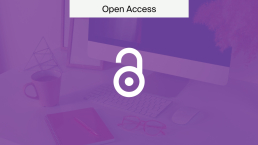
Open Access , Open Science , Academic Resources
All You Need to Know About Open Access
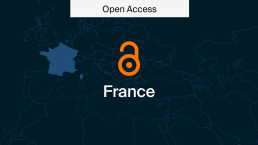
Open Access in France
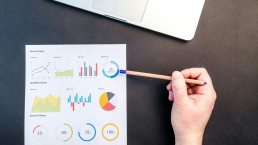
English Resources , Open Science , Academic Resources
Why Figures Are Important In Academic Research

Author Services Guide To Prepositions
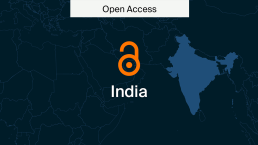
Open Access in India
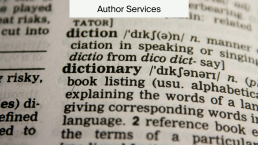
Author Services Guide To British And American English

What is the Barcelona Declaration on Open Research Information?
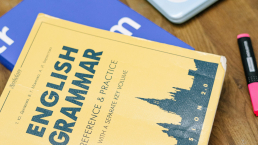
Open Science , Academic Resources
Why Grammar Is Important In Academic Communication
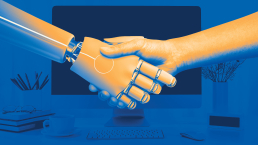
AI Tools for Researchers in Scientific Publishing
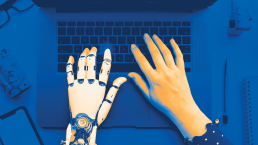
Artificial Intelligence in Scientific Publishing
Add comment cancel reply.
Save my name, email, and website in this browser for the next time I comment.
Privacy Preference Center
Privacy preferences.
From sharing the latest MDPI blog news, to showcasing our most popular articles, the newsletters will keep you in the loop with everything good going on in the science world.
Fake Degrees and Credential Fraud, Contract Cheating, and Paper Mills: Overview and Historical Perspectives
- First Online: 11 January 2023
Cite this chapter

- Sarah Elaine Eaton 12 &
- Jamie J. Carmichael 13
Part of the book series: Ethics and Integrity in Educational Contexts ((EIEC,volume 5))
555 Accesses
5 Citations
2 Altmetric
In this introductory chapter we provide an overview and historical perspectives of credential fraud, starting with definitions of key terms such as ‘fake degree’, ‘fraudulent degree’, ‘degree mill’, and ‘diploma mill’, among others. This chapter serves as a unifying thread for the volume as we discuss how fake degrees and other forms of credential fraud impact the entire lifecycle of the educational and professional spectrum. We show connections between the fake and fraudulent degree industry, contract cheating, admissions fraud, and scholarly paper mills, illustrating how the industries are linked, with mega-corporations selling both goods, such as bogus parchments, and services, student impersonation services, as well as fraudulent research and academic writing services. We synthesize what is currently known about the size and scope of these industries to provide an updated estimated valuation of the global academic fraud industry at $21 Billion USD. An original contribution of this work is our model of the ecosystem of commercial academic fraud that shows the relationship between fake degrees, contract cheating, admissions fraud, and scholarly paper mills.
This is a preview of subscription content, log in via an institution to check access.
Access this chapter
- Available as PDF
- Read on any device
- Instant download
- Own it forever
- Available as EPUB and PDF
- Compact, lightweight edition
- Dispatched in 3 to 5 business days
- Free shipping worldwide - see info
- Durable hardcover edition
Tax calculation will be finalised at checkout
Purchases are for personal use only
Institutional subscriptions
Similar content being viewed by others

Contract Cheating: The Outsourcing of Assessed Student Work

How Prevalent is Contract Cheating and to What Extent are Students Repeat Offenders?
Adam, L. (2016). Student perspectives on plagiarism. In T. Bretag (Ed.), Handbook of academic integrity (pp. 519–535). Springer Singapore. https://doi.org/10.1007/978-981-287-098-8_67
Chapter Google Scholar
Adlington, A., & Eaton, S. E. (2021). Contract cheating in Canada: Exploring legislative options. University of Calgary. http://hdl.handle.net/1880/114088
Angulo, A. J. (2016). Diploma mills: How for-profit colleges stiffed students, taxpayers and the American dream . Johns Hopkins University Press.
Book Google Scholar
Ansah, R. H., Aikhuele, D. O., & Yao, L. (2017). Unethical admissions: Academic integrity in question. Science and Engineering Ethics, 23 (4), 1237–1239. https://doi.org/10.1007/s11948-016-9815-9
Article Google Scholar
Arnstein, G. (1982). Credentialism: Why we have diploma mills. Phi Delta Kappan, 63 (8), 550–552.
Google Scholar
Attewell, P., & Domina, T. (2011). Educational imposters and fake degrees. Research in Social Stratification and Mobility, 29 (1), 57–69.
Baran, L., & Jonason, P. K. (2022). Contract cheating and the dark triad traits. In S. E. Eaton, G. Curtis, B. M. Stoesz, K. Rundle, J. Clare, & J. Seeland (Eds.), Contract cheating in higher education: Global perspectives on theory, practice, and policy . Palgrave Macmillan. https://doi.org/10.1007/978-3-031-12680-2_9
Bear, J. (1986). The diploma mill and modern technology. Education & Training, 28 (4), 122–123. https://doi.org/10.1108/eb017261
Boyd, W., & King, E. J. (1975). The history of western education (11th. ed.). A & C Black.
Brazao, D. (2008, December 13). Phony degrees catch up to buyers. Toronto Star . https://www.thestar.com/news/investigations/2008/12/13/phony_degrees_catch_up_to_buyers.html
Brown, G. M. (2006). Degrees of doubt: Legitimate, real and fake qualifications in a global market. Journal of Higher Education Policy and Management, 28 (1), 71–79. https://doi.org/10.1080/13600800500440789
Canadian Broadcasting Corporation (CBC). (2017). Fake degrees – Exposing Canadians with phoney credentials. https://www.cbc.ca/marketplace/m/episodes/2017-2018/fake-degrees-exposing-canadians-with-phoney-credentials
Carmichael, J., & Eaton, S. E. (2023). Admissions fraud in Canadian higher education. In S. E. Eaton & J. Carmichael (Eds.), Fake degrees and credential fraud in higher education . Springer.
Clare, J. (2022). Applying situational crime prevention techniques to contract cheating. In S. E. Eaton, G. Curtis, B. M. Stoesz, K. Rundle, J. Clare, & J. Seeland (Eds.), Contract cheating in higher education: Global perspectives on theory, practice, and policy . Palgrave Macmillan. https://doi.org/10.1007/978-3-031-12680-2_11
Clare, J., & Rundle, K. (2022). What can we learn from measuring crime when looking to quantify the prevalence and incidence of contract cheating? In S. E. Eaton, G. Curtis, B. M. Stoesz, K. Rundle, J. Clare, & J. Seeland (Eds.), Contract cheating in higher education: Global perspectives on theory, practice, and policy . Palgrave Macmillan. https://doi.org/10.1007/978-3-031-12680-2_2
Clarke, R., & Lancaster, T. (2006, 19–21 June). Eliminating the successor to plagiarism : Identifying the usage of contract cheating sites Second International Plagiarism Conference. The Sage Gateshead, Tyne & Wear.
Comas-Forgas, R., Sureda-Negre, J., & Morey-López, M. (2020). Spanish contract cheating website marketing through search engine advertisements. Assessment & Evaluation in Higher Education, 1–13 , 1035–1047. https://doi.org/10.1080/02602938.2020.1841091
Committee on Publication Ethics (COPE), & International Association of Scientific Technical and Medical Publishers (STM). (2022). Paper mills — Research report from COPE & STM. https://doi.org/10.24318/jtbG8IHL
Contreras, A. L. (2020). What is a degree? In A. L. Contreras (Ed.), The SAN blue book: State authorization of colleges and universities (pp. 5–40). State Authorization Network, WICHE Cooperative for Educational Technologies.
Contreras, A., & Gollin, G. (2009). The real and fake degree and diploma mills. Change: The Magazine of Higher Learning, 41 (2), 36–43. https://doi.org/10.3200/CHNG.41.2.36-43
Council for Higher Education Accreditation (CHEA), & United Nations Educational Scientific and Cultural Organization (UNESCO). (2009). Toward effective practice: Discouraging degree mills in higher education. https://www.cicic.ca/docs/CHEA-UNESCO-degree_mills_statement.en.pdf
Cressey, D. R. (1973). Other people’s money: A study in the social psychology of embezzlement . Patterson Smith.
Crockett, R. (2022). Presentation, properties and provenance: The three Ps of identifying evidence of contract-cheating in student assignments. In S. E. Eaton, G. Curtis, B. M. Stoesz, K. Rundle, J. Clare, & J. Seeland (Eds.), Contract cheating in higher education: Global perspectives on theory, practice, and policy . Palgrave Macmillan. https://doi.org/10.1007/978-3-031-12680-2_12
Cubberley, E. P. (1920). The history of education . Houghton Mifflin. https://archive.org/details/historyeducatio01cubbgoog/page/n8/mode/2up
Curtis, G. J., & Tindall, I. K. (2022). Contract cheating: The influence of attitudes and emotions. In S. E. Eaton, G. Curtis, B. M. Stoesz, K. Rundle, J. Clare, & J. Seeland (Eds.), Contract cheating in higher education: Global perspectives on theory, practice, and policy . Palgrave Macmillan. https://doi.org/10.1007/978-3-031-12680-2_10
Curtis, G., Clare, J., Rundle, K., Eaton, S. E., Stoesz, B. M., & Seeland, J. (2022). Contract cheating: An introduction to the problem. In S. E. Eaton, G. Curtis, B. M. Stoesz, K. Rundle, J. Clare, & J. Seeland (Eds.), Contract cheating in higher education: Global perspectives on theory, practice, and policy . Palgrave Macmillan. https://doi.org/10.1007/978-3-031-12680-2_1
Draper, M. (2022). Essay mills and contract cheating from a legal point of view. In S. E. Eaton, G. Curtis, B. M. Stoesz, K. Rundle, J. Clare, & J. Seeland (Eds.), Contract cheating in higher education: Global perspectives on theory, practice, and policy . Palgrave Macmillan. https://doi.org/10.1007/978-3-031-12680-2_4
Draper, M. J., & Newton, P. M. (2017). A legal approach to tackling contract cheating? International Journal for Educational Integrity, 13 (1), 1–16. https://doi.org/10.1007/s40979-017-0022-5
Draper, M., Lancaster, T., Dann, S., Crockett, R., & Glendinning, I. (2021). Essay mills and other contract cheating services: To buy or not to buy and the consequences of students changing their minds. International Journal for Educational Integrity, 17 (1), 13. https://doi.org/10.1007/s40979-021-00081-x
Eaton, S. E. (2021a, June 1). Academic integrity in Canadian higher education: The impact of COVID-19 and a call to action. Paper presented at the Canadian Society for the Study of Higher Education (CSSHE), University of Alberta [online]. http://hdl.handle.net/1880/113463
Eaton, S. E. (2021b). Plagiarism in higher education: Tackling tough topics in academic integrity . Libraries Unlimited.
Eaton, S. E. (2022). Contract cheating in Canada: A comprehensive overview. In S. E. Eaton & J. Christensen Hughes (Eds.), Academic integrity in Canada: An enduring and essential challenge (pp. 165–187). Springer. https://doi.org/10.1007/978-3-030-83255-1
Eaton, S. E., & Dressler, R. (2019). Multilingual essay mills: Implications for second language teaching and learning. Notos, 14 (2), 4–14. http://hdl.handle.net/1880/110695
Eaton, S. E., Stoesz, B. M., & Seeland, J. (2022). Listening to ghosts: A qualitative study of narratives from contract cheating writers from the 1930s onwards. In S. E. Eaton, G. Curtis, B. M. Stoesz, K. Rundle, J. Clare, & J. Seeland (Eds.), Contract cheating in higher education: Global perspectives on theory, practice, and policy . Palgrave Macmillan. https://doi.org/10.1007/978-3-031-12680-2_18
Elander, J., Pittam, G., Lusher, J., Fox, P., & Payne, N. (2010). Evaluation of an intervention to help students avoid unintentional plagiarism by improving their authorial identity. Assessment & Evaluation in Higher Education, 35 (2), 157–171. https://doi.org/10.1080/02602930802687745
Ellis, C., Zucker, I. M., & Randall, D. (2018). The infernal business of contract cheating: Understanding the business processes and models of academic custom writing sites. International Journal for Educational Integrity, 14 (1), 1–21. https://doi.org/10.1007/s40979-017-0024-3
Ellis, C., Rogerson, A. M., House, D., & Murdoch, K. (2022). “(Im)possible to prove”: Formalising academic judgement evidence in contract cheating cases using bibliographic forensics. In S. E. Eaton, G. Curtis, B. M. Stoesz, K. Rundle, J. Clare, & J. Seeland (Eds.), Contract cheating in higher education: Global perspectives on theory, practice, and policy . Palgrave Macmillan. https://doi.org/10.1007/978-3-031-12680-2_13
Ezell, A. (2019). Academic fraud and the world’s largest diploma mill. College and University, 94 (4), 39–46.
Ezell, A. (2022, February 3). The four original fraudbusters: Know your enemy [online]. AACRAO Webcast.
Ezell, A., & Bear, J. (2005). Degree mills: The billion-dollar industry that has sold over a million fake diplomas . Prometheus Books.
Glendinning, I. (2022). Aligning academic quality and standards with academic integrity. In S. E. Eaton, G. Curtis, B. M. Stoesz, K. Rundle, J. Clare, & J. Seeland (Eds.), Contract cheating in higher education: Global perspectives on theory, practice, and policy . Palgrave Macmillan. https://doi.org/10.1007/978-3-031-12680-2_14
Gollin, G. (2022, March 3). Burning St. Regis: Taking down the diploma mill that hijacked Liberia [online]. AACRAO Webcast, https://www.aacrao.org/docs/default-source/webinar-documents/2022_aacrao_webcast_final_gollin.pdf?sfvrsn=2ff543a5_2
Gollin, G., Lawrence, E., & Contreras, A. (2010, Winter). Complexities in legislative suppression of diploma mills. Stanford Law & Policy Review, 21 (1), 71–114.
Grue, D., Eaton, S. E., & Boisvert, S. (2021). Parallels between the contract cheating industry and organized crime. http://hdl.handle.net/1880/113323 .
Hextrum, K. (2019). Operation varsity blues: Disguising the legal capital exchanges and white property interests in athletic admissions. Higher education politics & economics, 5 (1), 15–32. https://doi.org/10.32674/hepe.v5i1.1359
Honick, C. A. (1995). The story behind proprietary schools in the United States. New Directions for Community Colleges, 1995 (91), 27–40. https://doi.org/10.1002/cc.36819959105
Jaschik, S. (2021, December 13). Last parent agrees to plead guilty in admissions scandal. Inside Higher Ed . https://www.insidehighered.com/quicktakes/2021/12/13/last-parent-agrees-plead-guilty-admissions-scandal
Jaschik, S. (2022, April 11). Ex-coach convicted in admissions scandal. Inside Higher Ed . https://www.insidehighered.com/admissions/article/2022/04/11/jury-convicts-ex-coach-admissions-case
Johnson, C. (2005). Degrees of deception: Are consumers and employers being duped by online universities and diploma mills? Journal of College and University Law, 33 (2), 411–490.
Johnson, C. (2006). Credentialism and the proliferation of fake degrees: The employer pretends to need a degree; the employee pretends to have one. Hofstra Labor & Employment Law Journal, 23 , 269–274.
Krásničan, V., Foltýnek, T., & Dlabolová, D. H. (2022). Limitations of contract cheating research. In S. E. Eaton, G. Curtis, B. M. Stoesz, K. Rundle, J. Clare, & J. Seeland (Eds.), Contract cheating in higher education: Global perspectives on theory, practice, and policy . Palgrave Macmillan. https://doi.org/10.1007/978-3-031-12680-2_3
Lancaster, T. (2018). Educational blackmail in the world of fake degrees, essay mills and contract cheating . https://www.linkedin.com/pulse/educational-blackmail-world-fake-degrees-essay-mills-thomas-lancaster/
Lancaster, T. (2022). Addressing contract cheating through staff-student partnerships. In S. E. Eaton, G. Curtis, B. M. Stoesz, K. Rundle, J. Clare, & J. Seeland (Eds.), Contract cheating in higher education: Global perspectives on theory, practice, and policy . Palgrave Macmillan. https://doi.org/10.1007/978-3-031-12680-2_15
Lancaster, T., & Prakhar, N. (2022, March 9). Are students using homework help sites to breach academic integrity? International Center for Academic Integrity (ICAI) annual conference [online].
McDade, D. (2020, June 3). What should your close rate be? Growth Orbit. https://growthorbit.com/what-should-your-close-rate-be/
McGowan, U. (2005). Academic integrity: An awareness and development issue for students. Journal of University Teaching and Learning Practice, 2 (3a), 48–57. http://jutlp.uow.edu.au/2005_v02_i03a/pdf/mcgowan_005.pdf
Newton, P. (2018). How common is commercial contract cheating in higher education? Frontiers in Education, 3 (67), 1–18. https://doi.org/10.3389/feduc.2018.00067
Newton, P. M., & Lang, C. (2016). Custom essay writers, freelancers, and other paid third parties. In T. Bretag (Ed.), Handbook of academic integrity (pp. 249–271). Springer Singapore.
Parnther, C. (2022). The rise of contract cheating in graduate education. In S. E. Eaton, G. Curtis, B. M. Stoesz, K. Rundle, J. Clare, & J. Seeland (Eds.), Contract cheating in higher education: Global perspectives on theory, practice, and policy . Palgrave Macmillan. https://doi.org/10.1007/978-3-031-12680-2_17
Quality and Qualifications Ireland (QQI). (2019). Academic integrity . https://www.qqi.ie/Articles/Pages/Academic-Integrity.aspx
Qureshi, J. (2017). The Axact scandal: A billion dollar scam and challenges to ethical business conduct. International Journal of Business and Management Studies, 6 (2), 165–180.
Reid, R. H. (1963). Degree mills in the United States [Unpublished doctoral dissertation]. Columbia University.
Rogerson, A. M. (2022). The encouragement of file sharing behaviours through technology and social media: Impacts on student cheating behaviours and academic piracy. In S. E. Eaton, G. Curtis, B. M. Stoesz, K. Rundle, J. Clare, & J. Seeland (Eds.), Contract cheating in higher education: Global perspectives on theory, practice, and policy . Palgrave Macmillan. https://doi.org/10.1007/978-3-031-12680-2_6
Seeland, J., Stoesz, B. M., & Vogt, L. (2020). Preventing online shopping for completed assessments: Protecting students by blocking access to contract cheating websites on institutional networks. Canadian Perspectives on Academic Integrity, 3 (1), 55–69. https://doi.org/10.11575/cpai.v3i1.70256
Seeland, J., Eaton, S. E., & Stoesz, B. M. (2022). Leveraging college copyright ownership against file-sharing and contract cheating websites. In S. E. Eaton, G. Curtis, B. M. Stoesz, K. Rundle, J. Clare, & J. Seeland (Eds.), Contract cheating in higher education: Global perspectives on theory, practice, and policy . Palgrave Macmillan. https://doi.org/10.1007/978-3-031-12680-2_5
Stewart, D. W. & Spille, H. A. (1988). Diploma mills: Degrees of fraud . ACE/Macmillan.
Sutherland-Smith, W., & Dawson, P. (2022). Higher education assessment design. In S. E. Eaton, G. Curtis, B. M. Stoesz, K. Rundle, J. Clare, & J. Seeland (Eds.), Contract cheating in higher education: Global perspectives on theory, practice, and policy . Palgrave Macmillan. https://doi.org/10.1007/978-3-031-12680-2_7
Tertiary Education Quality and Standards Agency (TEQSA). (2020). Contract cheating and blackmail . https://www.teqsa.gov.au/sites/default/files/contract-cheating-blackmail.pdf?v=1591659442
Thacker, E. J. (2022). Assessment brokering and collaboration: Ghostwriter and student academic literacies. In S. E. Eaton, G. Curtis, B. M. Stoesz, K. Rundle, J. Clare, & J. Seeland (Eds.), Contract cheating in higher education: Global perspectives on theory, practice, and policy . Palgrave Macmillan. https://doi.org/10.1007/978-3-031-12680-2_19
The Globe and Mail. (1923, December 7). More quack doctors stripped of titles. The Globe and Mail . p. 4. Retrieved from ProQuest Historical Newspapers: The Globe and Mail.
Thelin, J. R. (2019). An embarrassment of riches: Admission and ambition in American higher education. Society, 56 (4), 329–334. https://doi.org/10.1007/s12115-019-00376-3
United States Bureau of Education. (1882). Report of the commissioner of education for the year 1880. In. Washington, D.C.: Government Printing Office. https://ttu-ir.tdl.org/handle/2346/63559
United States Department of Education. (2022). Database of Accredited Postsecondary Institutions and Programs (DAPIP) . https://ope.ed.gov/dapip/#/home
United States Department of Justice: The United States Attorney’s Office – District of Massachusetts. (2020). California woman pleads guilty in college admissions case. https://www.justice.gov/usao-ma/pr/california-woman-pleads-guilty-college-admissions-case
United States Department of Justice: The United States Attorney’s Office – Southern District of New York. (2016, 21 December) . Manhattan U.S. attorney charges executive of Axact In $140 million diploma mill scam . https://www.justice.gov/usao-sdny/pr/manhattan-us-attorney-charges-executive-axact-140-million-diploma-mill-scam
Van Tol, J. E. (1990). Detecting, deterring and punishing the use of fraudulent academic credentials: A play in two acts. Santa Clara Law Review, 30 , 791–827.
Veeran-Colton, T., Sefcik, L., & Yorke, J. (2022). The extortionate cost of contract cheating. In S. E. Eaton, G. Curtis, B. M. Stoesz, K. Rundle, J. Clare, & J. Seeland (Eds.), Contract cheating in higher education: Global perspectives on theory, practice, and policy . Palgrave Macmillan. https://doi.org/10.1007/978-3-031-12680-2_16
Walsh, D. (2015, May 18). Fake diplomas, real cash: Pakistani company Axact reaps millions. New York Times . https://www.nytimes.com/2015/05/18/world/asia/fake-diplomas-real-cash-pakistani-company-axact-reaps-millions-columbiana-barkley.html
Yorke, J., Sefcik, L., & Veeran-Colton, T. (2020). Contract cheating and blackmail: A risky business? Studies in Higher Education, 47 (1), 55–66. https://doi.org/10.1080/03075079.2020.1730313
Download references
Author information
Authors and affiliations.
University of Calgary, Calgary, AB, Canada
Sarah Elaine Eaton
Carleton University, Ottawa, ON, Canada
Jamie J. Carmichael
You can also search for this author in PubMed Google Scholar
Corresponding author
Correspondence to Sarah Elaine Eaton .
Editor information
Editors and affiliations.
Werklund School of Education, University of Calgary, Calgary, AB, Canada
Helen Pethrick

Rights and permissions
Reprints and permissions
Copyright information
© 2023 The Author(s), under exclusive license to Springer Nature Switzerland AG
About this chapter
Eaton, S.E., Carmichael, J.J. (2023). Fake Degrees and Credential Fraud, Contract Cheating, and Paper Mills: Overview and Historical Perspectives. In: Eaton, S.E., Carmichael, J.J., Pethrick, H. (eds) Fake Degrees and Fraudulent Credentials in Higher Education . Ethics and Integrity in Educational Contexts, vol 5. Springer, Cham. https://doi.org/10.1007/978-3-031-21796-8_1
Download citation
DOI : https://doi.org/10.1007/978-3-031-21796-8_1
Published : 11 January 2023
Publisher Name : Springer, Cham
Print ISBN : 978-3-031-21795-1
Online ISBN : 978-3-031-21796-8
eBook Packages : Education Education (R0)
Share this chapter
Anyone you share the following link with will be able to read this content:
Sorry, a shareable link is not currently available for this article.
Provided by the Springer Nature SharedIt content-sharing initiative
- Publish with us
Policies and ethics
- Find a journal
- Track your research
Thank you for visiting nature.com. You are using a browser version with limited support for CSS. To obtain the best experience, we recommend you use a more up to date browser (or turn off compatibility mode in Internet Explorer). In the meantime, to ensure continued support, we are displaying the site without styles and JavaScript.
- View all journals
- Explore content
- About the journal
- Publish with us
- Sign up for alerts
- 06 November 2023
How big is science’s fake-paper problem?
- Richard Van Noorden
You can also search for this author in PubMed Google Scholar
The scientific literature is polluted with fake manuscripts churned out by paper mills — businesses that sell bogus work and authorships to researchers who need journal publications for their CVs. But just how large is this paper-mill problem?
Access options
Access Nature and 54 other Nature Portfolio journals
Get Nature+, our best-value online-access subscription
24,99 € / 30 days
cancel any time
Subscribe to this journal
Receive 51 print issues and online access
185,98 € per year
only 3,65 € per issue
Rent or buy this article
Prices vary by article type
Prices may be subject to local taxes which are calculated during checkout
Nature 623 , 466-467 (2023)
doi: https://doi.org/10.1038/d41586-023-03464-x
Reprints and permissions
Related Articles

- Scientific community

What the science of elections can reveal in this super-election year
Career Feature 10 JUN 24

How we packed off the giant pandas from the Smithsonian’s National Zoo

How to track the economic impact of public investments in AI
Comment 10 JUN 24

Meta’s AI system is a boost to endangered languages — as long as humans aren’t forgotten
Editorial 05 JUN 24

Scaling neural machine translation to 200 languages
Article 05 JUN 24
Neurotechnologies that can read our mind could undermine international norms on freedom of thought
Correspondence 04 JUN 24

China seeks global impact and recognition
Nature Index 05 JUN 24

Chinese research collaborations shift to the Belt and Road

A guide to the Nature Index
Postdoctoral Fellow in Immunology at Northwestern University
Our T cell biology lab is looking for fellows interested in improving immunotherapies for cancer and autoimmune disease through immune engineering.
Chicago, Illinois
Choi Laboratory at Northwestern
Faculty Positions in School of Engineering, Westlake University
The School of Engineering (SOE) at Westlake University is seeking to fill multiple tenured or tenure-track faculty positions in all ranks.
Hangzhou, Zhejiang, China
Westlake University
High-Level Talents at the First Affiliated Hospital of Nanchang University
For clinical medicine and basic medicine; basic research of emerging inter-disciplines and medical big data.
Nanchang, Jiangxi, China
The First Affiliated Hospital of Nanchang University
Professor/Associate Professor/Assistant Professor/Senior Lecturer/Lecturer
The School of Science and Engineering (SSE) at The Chinese University of Hong Kong, Shenzhen (CUHK-Shenzhen) sincerely invites applications for mul...
Shenzhen, China
The Chinese University of Hong Kong, Shenzhen (CUHK Shenzhen)
Sign up for the Nature Briefing newsletter — what matters in science, free to your inbox daily.
Quick links
- Explore articles by subject
- Guide to authors
- Editorial policies
Inside a Term Paper Mill
By chris higgins | oct 16, 2008.

Nick Mamatas is a published author. He has two novels in print, and a good bit of other stuff out there as well. So it's something of a shock when he admits, "for several years I made much of my freelance income writing term papers." Last week Mamatas published a fascinating article on his time in the term paper-writing industry. He explains what goes on in such an operation, breaks down the types of clients he worked with, and comments on the apparent legality of the practice (though it's, uh, more than frowned upon by pretty much everyone). Here's a sample:
The term paper biz is managed by brokers who take financial risks by accepting credit card payments and psychological risks by actually talking to the clients. Most of the customers just aren't very bright. One of my brokers would even mark assignments with the code words DUMB CLIENT. That meant to use simple English; nothing's worse than a client calling back to ask a broker — most of whom had no particular academic training — what certain words in the paper meant. One time a client actually asked to talk to me personally and lamented that he just didn't "know a lot about Plah-toe." Distance learning meant that he'd never heard anyone say the name. ... DUMB CLIENTS predominate. They should not be in college. They must buy model papers simply because they do not understand what a term paper is, much less anything going on in their assignments. I don't believe that most of them even handed the papers in as their own, as it would have been obvious that they didn't write them. Frequently I was asked to underline the thesis statement because locating it otherwise would have been too difficult. But that sort of thing was just average for the bottom of the barrel student-client.
Wow. The article goes on to describe the other types of clients Mamatas encountered, and even goes into detail on how much he was paid. Frankly this whole subject was news to me -- I've never bought a term paper, nor has anyone offered to sell me one. But then again, I went to college back in the dark ages (the 90's), when the World Wide Web was new-fangled and almost no one had cell phones. (We called them "car phones.")
Jason Kottke wrote about this story on Kottke.org and put up a poll asking readers if they had ever purchased a term paper. At the moment, the overwhelming majority have not (or at least won't admit it). So I'm curious: what's your experience with this issue? How prevalent is term paper buying in colleges today? Have you ever bought or sold a term paper?
(Via Kottke.org .) See also: a New York Times piece on a term paper mill which charges about $10 a page .
Addressing Paper Mills and a Way Forward for Journal Security
Jay Flynn, Executive Vice President & General Manager, Research, Wiley
April 04, 2023
Please note that this post originally appeared on Scholarly Kitchen .
Research publishers are in the business of sharing information and solutions to the biggest problems that the global community faces – energy, food security, water safety, vaccines, and many more. With low public trust in science, the integrity of research publishing has never been more important. Unfortunately, that trust is increasingly strained by academic fraud, the most prolific of which is paper mills.
What is a Paper Mill?
In recent years, publishers have seen an increase in research integrity issues stemming from systematic manipulation of the publishing process. Paper mills are at the heart of this. The scholarly publishing industry organization Committee on Publication Ethics (COPE) describes paper mills as “profit oriented, unofficial and potentially illegal organizations that produce and sell fraudulent manuscripts that seem to resemble genuine research.” Paper mills circumvent journal security by doing two things: manipulating identities of the participants in the publishing process, and fabricating content that gets published.
Journal security is thus critical for trustworthy research communication. Without it, paper mills and other schemes will continue to fill journals with fabricated content, and damage society’s trust in peer review and journal publications. The scale of the problem will only increase as technology, like generative AI, becomes more widely adopted.
The Effect of Paper Mills on Hindawi
Clarivate recently delisted 50+ journals across the industry for not meeting its criteria. Among these were 19 Hindawi (owned by Wiley) journals. Additionally, retractions across the industry are on the rise, as Retraction Watch reports .
In Hindawi’s case, this is a direct result of sophisticated paper mill activity. The extent to which our processes and systems were breached required an end-to-end review of every step in the peer review and publishing process. One takeaway became immediately and abundantly clear: the environment in which we operate has changed, and the research community – publishers, researchers, and the companies that provide services to them – needs to change with it.
How Hindawi Addressed the Problem
In September 2022, Wiley identified and immediately alerted the industry to paper mill activity we found operating at scale. Specifically, we found fraudulent outside editors that had subverted our processes and workflows, leading to a proliferation of bad content. This scheme hit Hindawi’s Special Issues program hard.
At Wiley we take full responsibility for the quality of the content we publish across our portfolio. We have since reworked the Special Issues publishing process to close these loopholes and protect the scholarly record. Specifically, we paused publication of Special Issues, alerted other publishers and third-party providers of the presence of bad actors in their systems, increased rigorous new checks throughout our publishing workflows, issued an initial 511 retractions, and introduced additional AI-based screening tools. We are currently in the process of retracting an additional estimated 1,200 compromised papers, and we are designing a new retraction process that will help us, and potentially others, accelerate and deal with this new era of mass retractions fairly.
While we have taken many concrete actions in both the short- and long-term, we know there is much more to do. The reality is that the methods bad actors use are increasingly sophisticated. Fraud migrates, and shutting down or securing one journal will simply encourage paper mills to seek another target. This is why publishers must work together and devote substantial resources to ensure the integrity of our journals and the content we publish.
Next Steps for Publishers
Publishers play an essential role in delivering journal security. We believe that we and our publishing peers must take these critical actions to protect the scholarly record:
- Increase our investment in both expertise and technology to support the early identification of unethical publishing behavior.
- Pursue effective and legal ways to share data about the bad actors who otherwise simply move from publisher to publisher, and expunge them from the tools, databases, and resources they exploit.
- Change the ways we work, including creating and embracing new systems, processes, and methods to eliminate fraud throughout the system.
Next Steps for the Industry
Publishers cannot – and should not – address this issue alone. All stakeholders in the industry, (including research integrity officers, funders, academic institutions, learned societies, and, crucially, third-party providers of data and tools) must collaborate to address behaviors that undermine research integrity.
A whole-of-system response includes working together to improve the bad incentives at work in the research evaluation system and the metrics on which it relies. In short, beyond doubling down on uncovering and disciplining academic misconduct, we all have a crucial role to play in modernizing the system itself.
Moving Forward Together
We urgently need a collaborative, forward-looking and thoughtful approach to journal security to stop bad actors from further abusing the industry's systems, journals, and the communities we serve. We’re committed to addressing the challenge presented by paper mills and academic fraud head on, and we invite our publishing peers, and the many organizations that work alongside us, to join us in this endeavor. I see this as a turning point in our industry. We need to make the right decisions, together. Our future depends on it.

3 Deals in 3 Minutes

3 Key Elements for Climate Action in Publishing

7 Drivers of Open Science

A Closer Look at the Wellcome Trust Publisher Requirements: A Q&A with Robert Kiley

A Look at the Rewards and Risks of Real-Time Open Research

A Practical Guide to Publishing Open Access for UK Researchers
All your CHORUS questions answered: a Q&A with Susan Spilka

An Editor's Thoughts on "Open in Order to..."

Breaking Down Barriers to Research Participation
Related articles.
Liz Ferguson, VP of Open Research, walks us through the three different transformational deals between Wiley and our partners.
Learn how the fundamentally more equitable open access, peer-reviewed research model can help humanity address the existential threat of climate change
In this infographic, we look at some of the driving forces behind the new era of open science, including emerging technologies, increased public scrutiny and the need for reproducibility.
We talk to the Wellcome Trust's Robert Kiley about the Trust's publisher requirements for open access, what they are, and how they benefit researchers.
What are the benefits and implications of a fully open research future?
If you are a UK researcher based at one of the 130+ participating UK Jisc institutions, there are new opportunities to publish your work open access with no charge to you.
Editor-in-Chief Roger Watson discusses the benefits of open access, such as increasing the global visibility and impact of research.
Wiley's Joe Walsh takes a look at how the Research4Life program has helped break down barriers to participation in research.

Connecting Research with Results: Open Science Badges
The editor-in-chief of the Journal of Neurochemistry and the co-editors of the Strategic Management Journal discuss the benefits of open science badges for the wider research community.

Copyright and Licensing with Wiley
Wiley’s 3rd annual Women in Research Travel Grant Competition celebrates the critical importance of representation through role models and mentors. Our judges shared their thoughts.
FOR INDIVIDUALS
FOR INSTITUTIONS & BUSINESSES
WILEY NETWORK
ABOUT WILEY
Corporate Responsibility
Corporate Governance
Leadership Team
Cookie Preferences
Copyright @ 2000-2024 by John Wiley & Sons, Inc., or related companies. All rights reserved, including rights for text and data mining and training of artificial technologies or similar technologies.
Rights & Permissions
Privacy Policy
Terms of Use
Facilitated Plagiarism: The Saga of Term-Paper Mills, and the Failure of Legislation and Litigation to Control Them
Villanova Law Review, Vol. 52, No. 1, 2007
47 Pages Posted: 28 Feb 2008 Last revised: 2 Apr 2018
Darby Dickerson
Southwestern Law School
This article discusses facilitated plagiarism: plagiarism or cheating by students who purchase and submit papers obtained from term-paper mills. The article begins by tracing forty-five years of term-paper mill history and operations, including the move to the Internet and efforts to circumvent regulations. It then discusses statutory and judicial efforts to control these companies. Next, the article analyzes why legal efforts have failed. The article concludes by laying the groundwork for future work regarding a comprehensive approach to academic dishonesty on college campuses. That foundation involves adopting and applying concepts of environmental management to issues of academic dishonesty, including plagiarism and facilitated plagiarism.
Keywords: plagiarism, term paper mills, plagiarize, plagiarized, academic honesty, academic dishonesty, writing, cheating
JEL Classification: K00, K13, K14, K42
Suggested Citation: Suggested Citation
Darby Dickerson (Contact Author)
Southwestern law school ( email ).
3050 Wilshire Blvd. Los Angeles, CA 90010 United States
Do you have a job opening that you would like to promote on SSRN?
Paper statistics, related ejournals, social sciences education ejournal.
Subscribe to this fee journal for more curated articles on this topic
Cyberspace Law eJournal
Legislation & statutory interpretation ejournal, economic & social impacts of innovation ejournal, education law ejournal, innovation educator: courses, cases & teaching ejournal.

Term Paper Mills, Anti-Plagiarism Tools, and Academic Integrity
- Find guidance
- Our organisation
- Core Practices
- Find a member
- Become a member
- Work with us
You are here
Potential paper mills, potential “paper mills” and what to do about them – a publisher’s perspective.
A recent COPE forum discussion focused on the significant problem of “paper mills”. This term describes the process by which manufactured manuscripts are submitted to a journal for a fee on behalf of researchers with the purpose of providing an easy publication for them, or to offer authorship for sale. The concerns with these submissions include faked or manipulated data/images, the use of stock images, substantial authorship changes, and plagiarism, which is not detected because it comes from a translated version of another article.
There are many reasons why this phenomenon poses a challenge for publishers. Paper mills are often detected after a pattern of submission behaviour across several submissions and journals becomes apparent. There is wide variation in “signs” for paper mill activity which can be difficult to distinguish from honest and legitimate author behaviours. Even original data can be convincingly fabricated and must be independently verified, a challenge in itself for a busy journal with busy peer reviewers and editors, who are usually not in a position to spot such problems.
Typically, when concerns arise, we will contact the listed authors for an explanation, or contact the institution to request assistance with an investigation. However, the authors of these submissions often use non-institutional email addresses, which are difficult to verify. This then raises the concern that even when we do receive a response to our queries, we can’t be assured we’re actually communicating with the authors. In addition, when we have reached out to the institutions (here it’s often not clear who to contact), we may not receive a response.
In situations where we do receive a response to our requests to share the original data, we receive large numbers of files, often not clearly labelled, which sometimes require specialist laboratory software to open. Managing this at scale is a significant challenge, and in many cases the trends only emerge when comparing with other potential paper mill submissions or published articles. By this time, many paper mill submissions might have been published, and at that stage we are alerted to the problem by “data sleuths” such as Elisabeth Bik , who skilfully detect suspicious patterns.
Although, once detected we do take steps to investigate and correct the scholarly records (eg, retraction or expression of concern), we need to ensure we prevent these papers being published in the first place. Paper mills are quick to adapt to publisher and journal requests and investigation processes, and continue to move the goalposts in order to manipulate the publishing process . So, what can publishers do?
Firstly, publishers need to take collective action to put in place appropriate checks and balances , and create cross-publisher policies. In this regard, there’s an important opportunity here for COPE to continue to work with publishers to create guidance and adapt flowcharts to assist in detecting potential manuscripts from paper mills early in the process. This in turn will increase awareness and training amongst journal editors, editorial staff, and publishers so that additional requirements and enhanced checks at the submission stage can be adopted more widely (e.g., mandatory data sharing policies, especially for the types of data which can be more easily faked/manipulated).
The need for technology to help address these issues is clear, and so publishers are collaborating with developers of such programmes (e.g., with institutions , and organisations such as Proofig and a STM-STEC working group on image alterations). There are also conferences dedicated to technical solutions like those that are required where innovations can be shared (e.g., https://cri-conf.org /).
At the time of writing, the scale of this problem is mainly affecting biomedical journals, but there’s also evidence that other disciplines are being affected too. It’s important we continue to learn from each other, and collaborate on data sharing policies, technology and training, in order to collectively combat this manipulation of the publishing process.
Sabina Alam, Director of Publishing Ethics and Integrity, Taylor & Francis Group
Jigisha Patel, Independent Research Integrity Consultant
Christna Chap, Head of Editorial Development, Karger Publishers
Sarah Robbie, Head of Research Integrity & Ethics, Taylor & Francis Group
Ulf Scheffler, Deputy Editor, Wiley
Elizabeth Moylan, Publisher (Research Integrity and Publishing Ethics), Wiley
Page last updated
12 October 2020
Related resources
- Paper mills research report , COPE & STM, 2022
- Systematic manipulation of the publishing process via “paper mills” COPE Forum discussion
- Systematic manipulation of the publication process , COPE guidance
Current time by city
For example, New York
Current time by country
For example, Japan
Time difference
For example, London
For example, Dubai
Coordinates
For example, Hong Kong
For example, Delhi
For example, Sydney
Geographic coordinates of Elektrostal, Moscow Oblast, Russia
City coordinates
Coordinates of Elektrostal in decimal degrees
Coordinates of elektrostal in degrees and decimal minutes, utm coordinates of elektrostal, geographic coordinate systems.
WGS 84 coordinate reference system is the latest revision of the World Geodetic System, which is used in mapping and navigation, including GPS satellite navigation system (the Global Positioning System).
Geographic coordinates (latitude and longitude) define a position on the Earth’s surface. Coordinates are angular units. The canonical form of latitude and longitude representation uses degrees (°), minutes (′), and seconds (″). GPS systems widely use coordinates in degrees and decimal minutes, or in decimal degrees.
Latitude varies from −90° to 90°. The latitude of the Equator is 0°; the latitude of the South Pole is −90°; the latitude of the North Pole is 90°. Positive latitude values correspond to the geographic locations north of the Equator (abbrev. N). Negative latitude values correspond to the geographic locations south of the Equator (abbrev. S).
Longitude is counted from the prime meridian ( IERS Reference Meridian for WGS 84) and varies from −180° to 180°. Positive longitude values correspond to the geographic locations east of the prime meridian (abbrev. E). Negative longitude values correspond to the geographic locations west of the prime meridian (abbrev. W).
UTM or Universal Transverse Mercator coordinate system divides the Earth’s surface into 60 longitudinal zones. The coordinates of a location within each zone are defined as a planar coordinate pair related to the intersection of the equator and the zone’s central meridian, and measured in meters.
Elevation above sea level is a measure of a geographic location’s height. We are using the global digital elevation model GTOPO30 .
Elektrostal , Moscow Oblast, Russia

IMAGES
VIDEO
COMMENTS
Essay mill. An essay mill (also term paper mill) is a business that allows customers to commission an original piece of writing on a particular topic so that they may commit academic fraud. Customers provide the company with specific information about the essay, including number of pages, general topic, and a time frame to work within.
Essays and term papers can be stressful, especially for international students who sometimes doubt their ability to research in depth and write thousands of words in English, all to a tight deadline. That's where essay mills come in, exploiting the fears of students and offering to do the hard work for them in exchange for money.
The overall size of the paper-mill problem probably runs to thousands or tens of thousands of papers, Bik, Byrne and others think 4. Graf, at Wiley, says it's hard to estimate. Graf, at Wiley ...
In 2018, the community first observed scientific papers in the biomedical literature that seemed to display systematically fabricated data, pointing to the existence of paper mills: unofficial, potentially illegal organizations selling fake scientific manuscripts. In the present article, we share relevant information specifically about the ...
The subject of paper mills is currently being widely discussed by many stakeholders across the research publishing landscape. This report aims to give an overview of this topic, to explain how paper mills work, ... that all stakeholders need to work together across the scholarly communication process to find long term solutions. This paper ...
A paper mill is a factory devoted to making paper from vegetable fibres such as wood pulp, old rags, and other ingredients. ... Many modern scholars use the term to refer indiscriminately to all kinds of mills, whether powered by humans, by animals or by water. Their propensity to refer to any ancient paper manufacturing center as a "mill ...
Paper mills are the process by which manufactured manuscripts are submitted to a journal for a fee on behalf of researchers with the purpose of providing an easy publication for them, or to offer authorship for sale. There is a pressure to publish for researchers and for some it is necessary to advance their career, and in some countries use of ...
In the long term, paper mill submissions have a lasting impact on the publishing industry. With no end in sight, what can the publishing industry do to eliminate paper mill papers?. "[Eliminating paper mills] is really important, because it's falsified research. It's manipulating the peer review process; it's putting scientific research ...
In research, a paper mill is a business that publishes poor or fake journal papers that seem to resemble genuine research, as well as sells authorship. In some cases, paper mills are sophisticated operations that sell authorship positions on legitimate research, but in many cases the papers contain fraudulent data and can be heavily plagiarized ...
Paper Mill. The phrases term paper mill and essay mill are commonly used to refer to outsourced student work, whereas the term paper mill is used in scholarly and scientific publishing to refer to "the process by which manufactured manuscripts are submitted to a journal for a fee on behalf of researchers with the purpose of providing an easy ...
Public discussion of the practice has been built around the metaphor of 'milling' educational commodities. This was first applied to the marketing of false qualifications, i.e., "diploma mills and other workers of iniquity" (Thompson, 1883, p. 646) and then the phrase 'term-paper mills' arose in the 1960s (Stavisky, 1973). 'Essay ...
The analysis estimates that 1.5-2% of all scientific papers published in 2022 closely resemble paper-mill works. Among biology and medicine papers, the rate rises to 3%. Source: Adam Day ...
How prevalent is term paper buying in colleges today? Have you ever bought or sold a term paper? (Via Kottke.org.) See also: a New York Times piece on a term paper mill which charges about $10 a page.
Paper mills circumvent journal security by doing two things: manipulating identities of the participants in the publishing process, and fabricating content that gets published. Journal security is thus critical for trustworthy research communication. Without it, paper mills and other schemes will continue to fill journals with fabricated ...
This article discusses facilitated plagiarism: plagiarism or cheating by students who purchase and submit papers obtained from term-paper mills. The article begins by tracing forty-five years of term-paper mill history and operations, including the move to the Internet and efforts to circumvent regulations.
Term Paper Mills, Anti-Plagiarism Tools, and Academic Integrity. Authors: Diana Oblinger, Marie Groark and Miranda Choa. Published: Saturday, September 1, 2001. PDF: PDF. 1 min read. As technology continues to change, the resulting increase in opportunites for dishonest behavior is threatening academic integrity in higher education today.
Two of those term-paper mills settled with the university in January, consenting to pay fines of several hundred dollars, to stop selling term papers to students in Massachusetts, and to provide ...
Potential "paper mills" and what to do about them - a publisher's perspective. A recent COPE forum discussion focused on the significant problem of "paper mills". This term describes the process by which manufactured manuscripts are submitted to a journal for a fee on behalf of researchers with the purpose of providing an easy ...
A Term Paper Mill. This is a less-than-current screen shot of a term paper mill which will not get the benefit of free advertising via a link. Notice that the term papers are not free for the taking. They have no authors, and probably should not be part of any legitimate research.
Office of Long Term Living. OMAP. Office of Medical Assistance Programs. OMHSAS Mental Health & Substance Abuse Services. OA Office of Administration. Apply for Benefits. All DHS Benefits. Child Abuse Clearances. Apply for Medicaid. Apply for SNAP. Apply for CHIP. Adopt PA Kids.
Buy Beautiful: the Carole King Musical (Touring) tickets at the Paper Mill Playhouse in Millburn, NJ for Jun 20, 2024 at Ticketmaster. Beautiful: the Carole King Musical (Touring) More Info. Thu • Jun 20 • 7:30 PM Paper Mill Playhouse, Millburn, NJ. ... Clear search term. Submit Search. We're Here to Help.
Moscow Oblast ( Russian: Моско́вская о́бласть, Moskovskaya oblast) is a federal subject of Russia. It is located in western Russia, and it completely surrounds Moscow. The oblast has no capital, and oblast officials reside in Moscow or in other cities within the oblast. [1] As of 2015, the oblast has a population of 7,231,068 ...
Geographic coordinates of Elektrostal, Moscow Oblast, Russia in WGS 84 coordinate system which is a standard in cartography, geodesy, and navigation, including Global Positioning System (GPS). Latitude of Elektrostal, longitude of Elektrostal, elevation above sea level of Elektrostal.
Elektrostal. Elektrostal ( Russian: Электроста́ль) is a city in Moscow Oblast, Russia. It is 58 kilometers (36 mi) east of Moscow. As of 2010, 155,196 people lived there.
In 1938, it was granted town status. [citation needed]Administrative and municipal status. Within the framework of administrative divisions, it is incorporated as Elektrostal City Under Oblast Jurisdiction—an administrative unit with the status equal to that of the districts. As a municipal division, Elektrostal City Under Oblast Jurisdiction is incorporated as Elektrostal Urban Okrug.